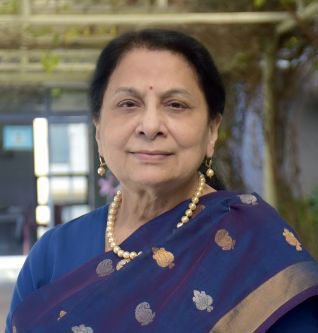Education should prepare students for life, not just a job
 What is education? “The creation of sound mind and body,” according to Greek philosopher Aristotle. Our Gurukul system of education too had similar views and the thrust was on overall personality development and character formation of students. Oneness with nature, physical activities, and sports were as important as academics. For these activities inculcated a sense of discipline and helped in developing confidence, mindfulness, and intellect of students, so important in our day-to-day life.
What is education? “The creation of sound mind and body,” according to Greek philosopher Aristotle. Our Gurukul system of education too had similar views and the thrust was on overall personality development and character formation of students. Oneness with nature, physical activities, and sports were as important as academics. For these activities inculcated a sense of discipline and helped in developing confidence, mindfulness, and intellect of students, so important in our day-to-day life.
The focus on overall personality development was somehow lost in our modern education system. The emphasis shifted to learning by rote to earn a degree. Students focused only on their respective subjects and often didn’t know much beyond it. Their aim was to secure a degree that would land them in a good job. Soon, the limitations in our education system were exposed. The industry was struggling to find the right talent while students were grappling to cope with their jobs.
It didn’t take us long to realise that education is a complete process that should have a deep connect with life. It should foster curiosity for knowledge in young minds and inspire them to work for a better society. This is only possible when we adopt a seamless and multi-disciplinary approach to learning. Students should be encouraged to learn beyond their subject and apply their knowledge to real life situation.
The new education policy (NEP) 2020 has made a significant stride in that direction. NEP advocates multi-disciplinary approach that helps in building a better learning process for students. Students must have the freedom and flexibility to choose how and what they want to learn. vis-à-vis inclusion of vocational training, skill development courses. All these lead to the core principle of being Industry-linked. NEP encourages industry aligned education to help improve the employability of graduating students across the country.
Universities should help students to apply their knowledge and technological know-how to contribute meaningfully to the world of work. Organizations today need critical thinkers who can analyse various situations and suggest solutions accordingly. Just securing a degree is far from enough, education needs to foster curiosity in students and encourage them to become life-long learners. In today’s dynamic environment, business processes are continuously evolving. The need of the hour is well-rounded individuals who are willing to learn new skills to adapt to the ever-changing world of work.
Co-curricular activities play an important role in developing confidence and shaping the overall personality of students. It is important for educational institutions to include co-curricular activities and encourage students to form their own clubs and participate in debate, sports, theatre and other non-academic activities. These activities go a long way in building team spirit and leadership skills in students. It is by exploring their passion and through real-life experiences that students can learn more about themselves and be more creative and confident in dealing with problems later in life.
Also, it is important to remember that education cannot be divorced from the environment we live in. The recent pandemic and the various vagaries of nature have only reinforced the importance of sustainable models of education that is one with nature and the society that we live in. Therefore, education should sensitise students towards the environment and encourage them in coming up with new solutions to combat issues like pollution and climate change. Universities and educational institutions should strive to shape young minds into well-rounded individuals who can contribute meaningfully to improve the world they live in.

